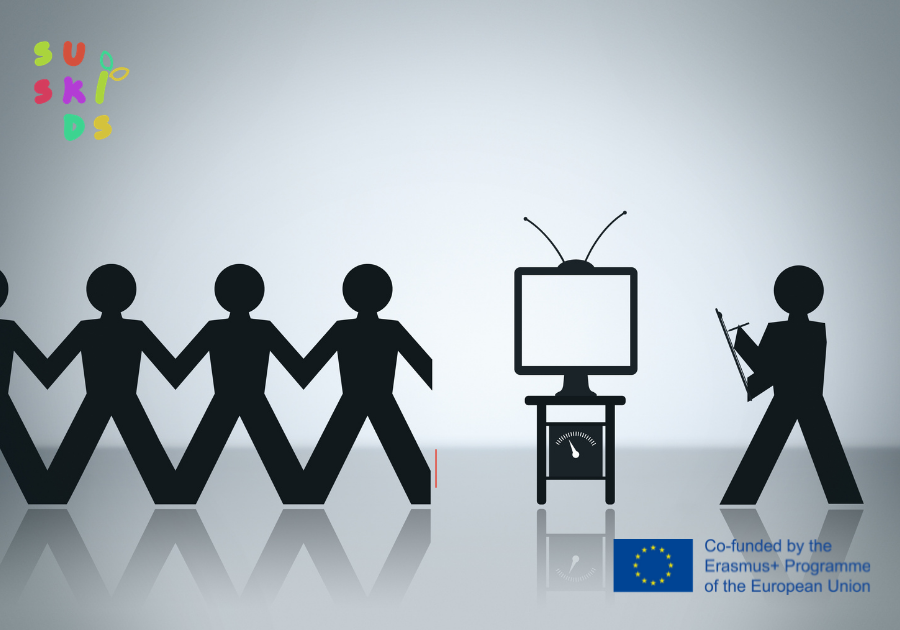How do we assess sustainable skills?
Our partner UCLL has implemented focus groups to gather feedback from experts in inclusive education
Education for children with Down Syndrome
A training programme should not be restrictive but should above all inspire people to arrive at a certain (learning) process. For this reason, in the Flemish region where the Dutch team in SUSKIDS works, UCLL, the so-called IAC (Individually Adapted Curriculum) are developed, geared to the learning potential of the pupil himself and responding to the strengths and talents of this pupil/young person.
Method for validating the evaluation guidelines.
To validate the Evaluation Guidelines planned as Intellectual Result 4 of the SUSKIDS Project, a focus group at UCLL was organized with 5 five experts from education to discuss the evaluation standards and methods in Flanders. In focus groups, works is established according to a structured scheme, in which initially the project is framed, followed by a brief overview of the developed training and subsequently the main objective is addressed: the evaluation methods for the learning objectives.

In Flanders, the expert group was organized online due to COVID restrictions. The experts present in the online focus group were Izabel Janssens and Sofie van Eynde, both involved in an educational project to clarify support roles in relation to children with specific educational needs; Els Teijssen, expert and hands-on expert on vulnerable young people and diversity in education; Dr Hannah Boonen, an expert in inclusive education and leader of the research line ”Inclusive Education”; and finally Dr Elke Emmers, an expert in inclusive (higher) education and diversity, head of the research centre “inclusive society”.
Results
The key message of the expert group was to pay attention to learning objectives and evaluation methods tailored to the pupil in front of us. Therefore, the most important thing is to adapt and create learning opportunities for a certain pupil. It is therefore important to see and read the results as guidelines or advice that can be used to test the learning objectives or to gain insight into the learning process of the pupil.
The main guideline remains to possibly define smaller intermediate objectives. Attention must also be paid to the difference between process and product. The learning goals in the form of process and product must be made very clear in one way or another so that the pupil can assess himself in his learning process. This is also an important element to consider the further development of the training within the SUSKIDS project.
The expert group also thinks it is very important not to let the course stand alone, but to integrate it into the whole learning process at school. So that parts of the course are integrated in, for instance, language lessons, math lessons and other practical lessons. In this way, the teacher or training provider is given more scope to activate the pupil on the basis of his or her talents and strengths.
Conclusions: impact of the course
In addition, it is equally important to consider the impact on learners as well as the impact on teachers to ensure that innovation cycles continue to optimise and adapt the course to different learning styles and different learners. It must not get bogged down in a fixed course that will always be taught in the same way.
It must remain focused in order to offer a meaningful learning process.
When teachers are inspired to work on sustainability and have the courage to work out such a learning line, it is possible that they will work together to make it happen. Moreover, it is also good for teachers to start reflecting on sustainability as a topic in education and thus reflect on the challenges and opportunities they must face in the course.
Young people have a natural reflex to think about sustainability and adopt behaviours that are sustainable. Special attention must be paid to the transfer between school and the home situation to see the knowledge, skills and attitude surrounding sustainability reflected in multiple situations (macro level of learning). Involving the wider learning environment is important here so that the results of the course become visible in the daily life of the learner.

© 2019 Suskids. Sustainability Skills for Down Syndrome. Funded by the Erasmus+ Programme. Gant Agreement 2018-1-ES01-KA201-050639.
The European Commission support for the producition of this publication does not constitute an endorsement of the contents which reflects the views only for the authors, and the Commission cannot be held responsible for any use which may be made of the information contained therein.





